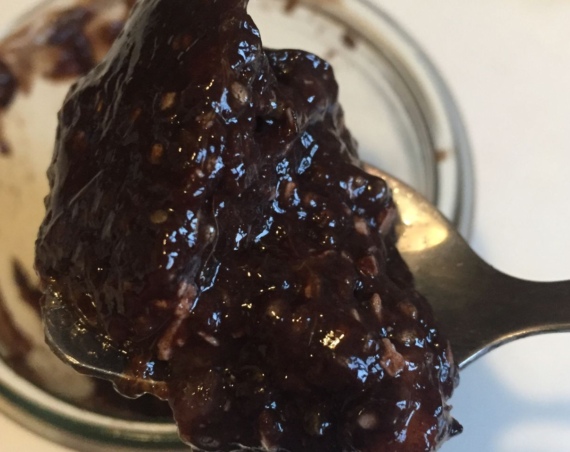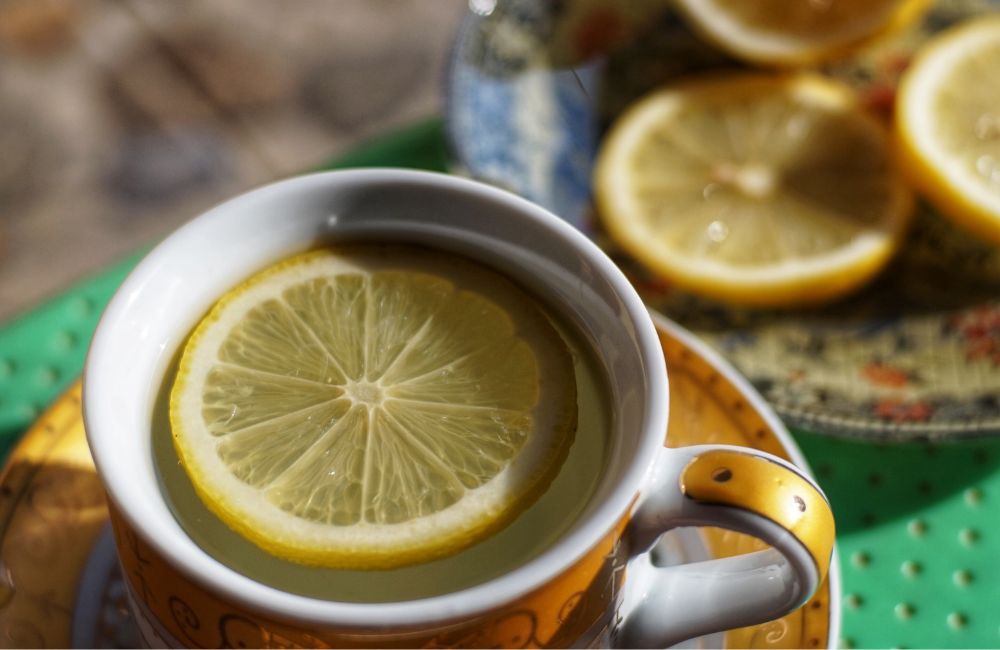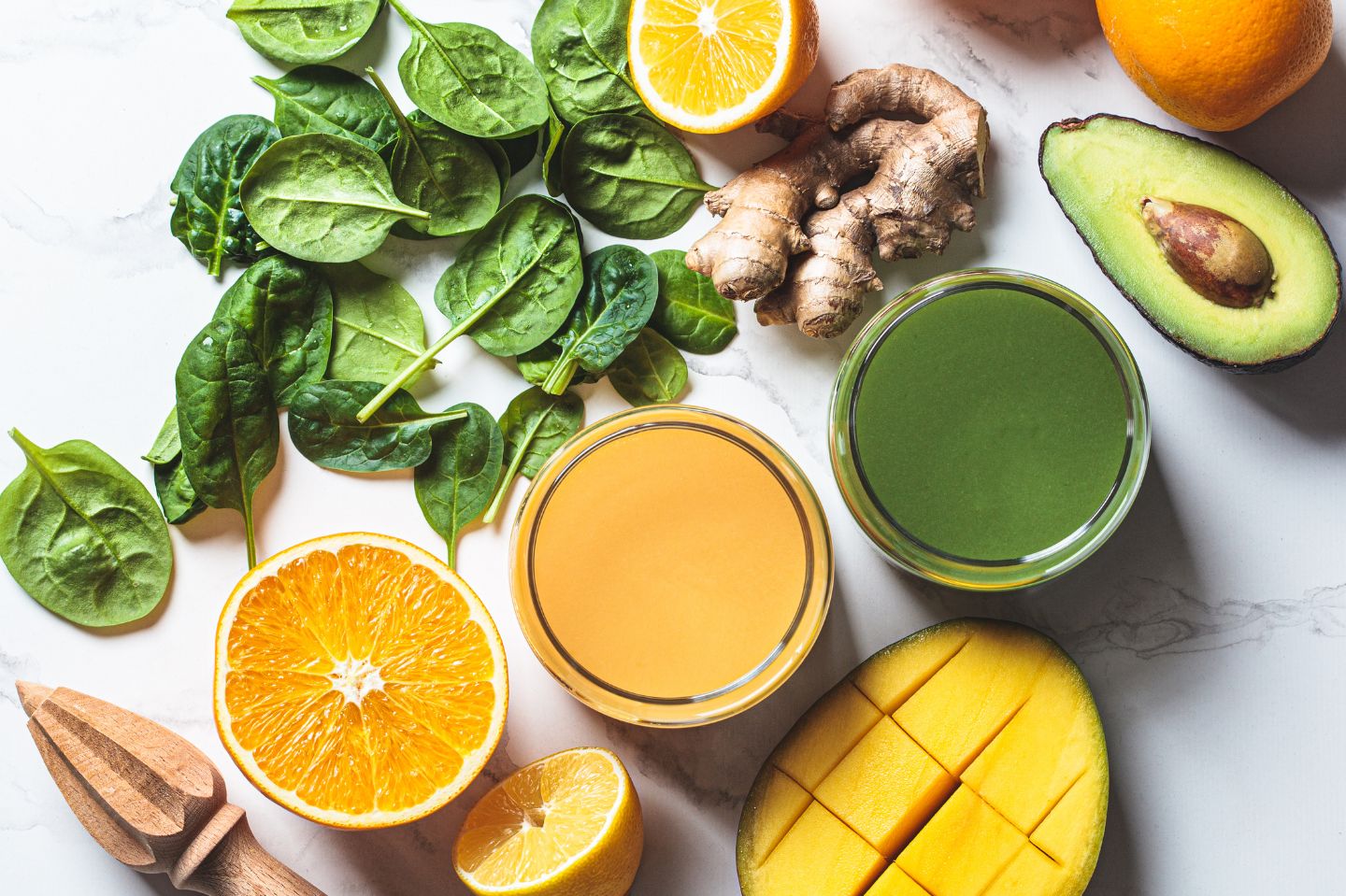
Struggling to shed those stubborn pounds? Consider jumpstarting your weight loss journey with a targeted liver detox plan.
Often, weight loss efforts are hindered by challenges like digestive issues and persistent cravings. Beneath these struggles lie deeper issues like inflammation, hormonal imbalances, and inefficient liver detoxification processes.
While the liver is naturally adept at detoxifying the body, certain foods can support its functions and promote optimal detoxification.
But what exactly are the benefits of enhancing liver detoxification? And can accelerating this process truly facilitate weight loss? Let’s delve into each aspect and explore the scientific evidence behind them.
Define Liver Detox
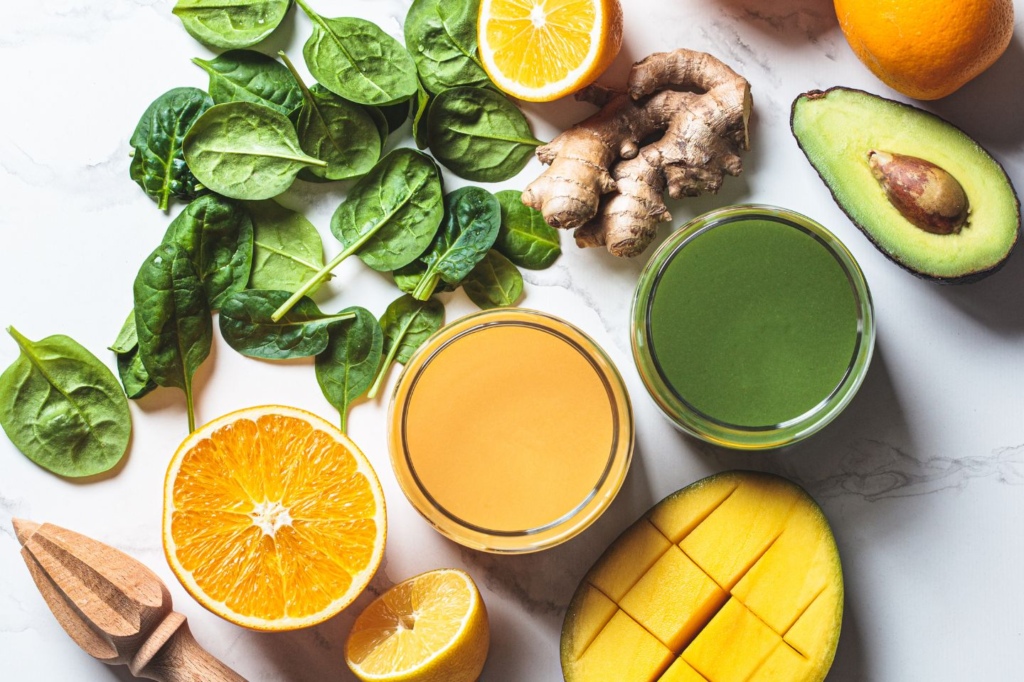
The first step is to define liver detox. The liver is the great gatekeeper in the body. The liver sorts out what stays and what needs to leave the body. Toxins, of course, need to leave.
These are substances that do not help our body, like pollutants from the environment, smoke, and possibly on or in what we eat.
When working properly, the liver does an exceptional job of getting rid of these toxins.
However, just like all other organs, the foods we eat can either help our liver work optimally or harm the liver’s ability to function at optimal levels.
We know that what we eat can affect our heart, brain, gut, and pancreas.
Why wouldn’t our diet also have an impact on our liver?
You may also like:
- Want To Lose Weight Faster? Science Says Do These 3 Simple Things Daily
- How To Lose Weight Fast As Possible: 8 Science-Backed Tips
Liver Detox Plan
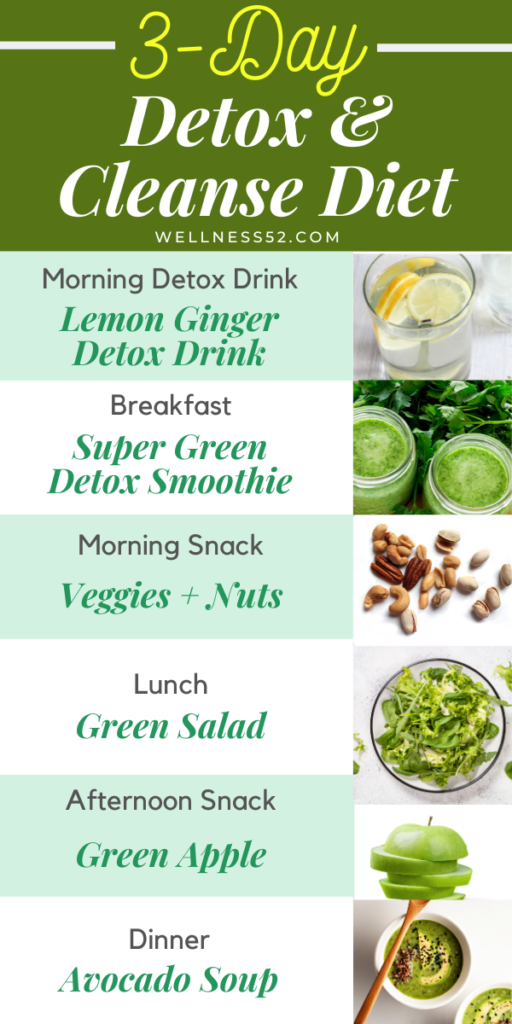
Can a liver detox transform your health in 3 Days?
Well, you will probably notice a difference within 3 days; however, to get long-term health benefits, you will need to consistently eat liver-supporting foods daily.
Eating a piece of cake once a year on your birthday isn’t going to cause permanent damage to your body and likewise, doing a liver detox once a year isn’t going to transform your health.
However, consistently eating foods that promote liver function as well as general health, can transform your health.
Moreover, your body will start to feel better, and your stomach may even look flattered as soon as three days after eating foods that support the liver detoxification process.
Give your body just a little longer to reap the benefits and you may soon notice reduced inflammation and weight loss.
How Does The Liver Work
Can We Consume Foods or Drinks that Promote Liver Detox? What Does the Research Say?
We are bombarded with substances that are not good for our bodies, and our livers must work hard to remove them all. Accumulation of toxins can increase the risk of many conditions, like cardiovascular disease, diabetes, and obesity.
These harmful substances are not water-soluble; therefore, can’t be removed through urine, waste, sweat, or respiration. The liver detoxification process involves making these harmful toxins water-soluble.
Liver detoxification is a two-phase process involving many different enzymes. Based on research, certain foods may help upregulate and even assist the liver during both phases of the liver detoxification process.
Studies, including a systemic review, noted that the following foods may help upregulate or speed up liver detox:
- Cruciferous vegetables, especially watercress, broccoli, cabbage, and Brussel Sprouts
- Fruits and berries, especially apples, grapefruit, blueberries, pomegranate, grapes, peaches, and plums
- Herbs and spices, like garlic, Rosemary, turmeric, cilantro, and coriander
- Dark leafy greens like spinach and kale
- Nori or seaweed
- Lecithin-rich lean proteins like eggs and soy
- Nuts and seeds, especially walnuts (1, 2).
Notice that these foods are high in antioxidants and fiber. Fiber can help with liver detoxification by regulating the waste-removing process. Whole grains, nuts, seeds, vegetables, and fruit are good sources of fiber (2).
Drinking plenty of water and limiting alcohol consumption are also crucial for liver health. Obesity can also increase your risk of developing liver disease.
Decreasing your refined sugar, refined grains, and ultra-processed foods intake and increasing fiber intake also promote weight loss and support liver detox.
Supplements and Liver Detoxification
Supplements may help support liver detox. Glutathione is the major antioxidant in our bodies and is made up of three amino acids. In the GI tract, glutathione is broken down into its three amino acids. The three amino acids must rejoin to recreate glutathione in the body.
The ability to create glutathione decreases with age. By age 40, our ability to create glutathione diminishes by 30%, and by 50, our ability diminishes by 50%. Smoking, pollution, and medical conditions decrease glutathione production as well.
Glutathione significantly enhances the liver detoxification process; therefore, eating foods that contain these amino acids is essential. Glutathione supplementation may also help ensure your body is getting enough glutathione amino acids.
To help increase glutathione in the body, you can also consume foods high in other antioxidants. When your body has plenty of antioxidants, it can save glutathione for other functions including the liver detoxification process. This is another way antioxidants can support liver detoxification (3).
Since glutathione is the major antioxidant in our body, it also plays a significant role in protecting our body from cancer, diabetes, Alzheimer’s disease, mood disorders, viruses, and chronic diseases like heart disease (3, 4).
3-Day Live Detox Plan
Day 1
- Breakfast: Start your day with a refreshing glass of water infused with lemon. Follow it up with a nourishing meal of cooked quinoa paired with flax oil, nuts or seeds for protein, and unsweetened dried fruit.
- Lunch: Sip on herbal tea as you enjoy a comforting bowl of kitchari, complemented by steamed collards drizzled with lemon miso tahini dressing.
- Dinner: Treat yourself to half a melon or a bowl of mixed fruit, accompanied by a hearty mix of broccoli, kale, onions, and chickpeas sautéed in olive oil. Complete your meal with a baked sweet potato.
Day 2
- Breakfast: Revitalize yourself with water infused with lemon, followed by a delicious fruit smoothie or a generous serving of fresh fruit paired with yogurt, flax or hemp seeds, and spirulina.
- Lunch: Indulge in a vibrant salad comprising mixed greens, grated or boiled beets, and a zesty lemon miso tahini dressing or flax oil and balsamic vinegar. Supplement it with leftover quinoa tossed with chopped raw vegetables flax oil and balsamic vinegar, along with a serving of black bean stew.
- Dinner: Relish a comforting bowl of carrot-ginger soup, accompanied by steamed spring greens drizzled with flax oil and a side of brown rice. Conclude your meal with a soothing herbal tea.
Day 3
- Breakfast: Kickstart your day with water infused with lemon, followed by a serving of leftover kitchari paired with sauerkraut for added flavor and benefits.
- Lunch: Enjoy a refreshing kombucha alongside leftover baked sweet potato, mashed, and a mixed salad featuring grated carrots, sprouts, and a tangy lemon miso tahini dressing or flax oil and balsamic vinegar. Add in some leftover black bean stew or carrot-ginger soup for a satisfying meal.
- Dinner: Delight in an ocean veggie stir-fry served with leftover brown rice, accompanied by a comforting cup of herbal tea.
Snacks? Absolutely! Enjoy these nutritious treats between meals to keep your energy levels stable: Almond milk, fresh fruit, homemade fruit smoothie, baked beets, vegetable juices, oatmeal, raw carrots, celery, cucumbers, radishes, or steamed broccoli or other greens drizzled with flax oil, and salads topped with lemon miso tahini dressing.
Liver Detox Drinks
Although you can get these foods in your daily meals, you may want to try a combination of these liver detox ingredients in a smoothie. Breakfast is a great time to incorporate a quick and easy smoothie.
Then for lunch and dinner, eat a healthy meal. Make sure your lunch and dinner provide ample vegetables and lean proteins. Whole grains, like quinoa and brown rice, are also important additions to a healthy meal.
These smoothies are packed with the big three liver detox ingredients: antioxidants, fiber, and lecithin. To make these smoothies, simply combine the ingredients in a large blender and enjoy.
Breakfast Smoothie 1:
- 1/4 cup ice
- ½ teaspoon glutathione powder
- ¼ cup soy protein
- 1 cup blueberries
- ¼ cup plain Greek yogurt
- 1 banana
- ½ teaspoon pure almond extract
- 1 cup unsweetened almond milk (adjust for desired consistency)
Breakfast Smoothie 2:
- ¼ cup soy protein
- 1 cup sliced plums
- 1 teaspoon coriander
- 1/3 cup nori
- 1 banana
- ¼ cup plain Greek yogurt
- 1/4 cup ice
- 1 teaspoon vanilla extract
- 1 cup unsweetened almond milk (adjust for desired consistency)
Breakfast Smoothie 3:
- 1/4 cup ice
- ¼ cup vanilla collagen powder
- ½ cup kale
- ½ teaspoon turmeric
- 1/3 teaspoon black pepper
- ¼ cup walnuts
- 1 cup sliced peaches
- 1 sliced and peeled avocado
- 1 banana,
- 1 teaspoon vanilla extract,
- 1 cup unsweetened almond milk (adjust for desired consistency)
Summary
One crucial job of the liver is to remove toxins from our bodies. The liver does this in two phases. The phases involve transforming non-soluble toxic substances into water-soluble substances. Water-soluble substances can be removed from the body through urine, sweat, waste, respiration, and bile.
The liver’s ability to detox our body significantly impacts our ability to ward off chronic disease and lose weight.
Antioxidant, fiber, and lecithin-rich foods support liver detox. These foods include cruciferous vegetables, fruit and berries, herbs and spices, dark leafy greens, nuts, whole grains, nori, and soy.
Eating foods that support liver detox can help you feel better in as little as three days. You will need to regularly eat foods that enhance liver detox for long-term health benefits.
Limit refined sugar, refined grains, and alcohol to promote healthy liver function. Glutathione is the major antioxidant in the body and is significantly involved in the liver detox process. Glutathione supplements may provide help to support the liver and other organs.
References
- Guan, Yong-Song, and Qing He. “Plants Consumption and Liver Health.” Evidence-Based Complementary and Alternative Medicine : ECAM, Hindawi Publishing Corporation, 2015, https://www.ncbi.nlm.nih.gov/pmc/articles/PMC4499388/.
- Hodges, Romilly E, and Deanna M Minich. “Modulation of Metabolic Detoxification Pathways Using Foods and Food-Derived Components: A Scientific Review with Clinical Application.” Journal of Nutrition and Metabolism, Hindawi Publishing Corporation, 2015, https://www.ncbi.nlm.nih.gov/pmc/articles/PMC4488002/.
- Minich, Deanna M, and Benjamin I Brown. “A Review of Dietary (Phyto)Nutrients for Glutathione Support.” Nutrients, MDPI, 3 Sept. 2019, https://www.ncbi.nlm.nih.gov/pmc/articles/PMC6770193/.
- Pizzorno, Joseph. “Glutathione!” Integrative Medicine (Encinitas, Calif.), InnoVision Professional Media, Feb. 2014, https://www.ncbi.nlm.nih.gov/pmc/articles/PMC4684116/.

